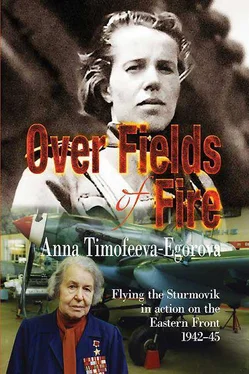Anna Timofeeva-Egorova - Over Fields of Fire
Здесь есть возможность читать онлайн «Anna Timofeeva-Egorova - Over Fields of Fire» весь текст электронной книги совершенно бесплатно (целиком полную версию без сокращений). В некоторых случаях можно слушать аудио, скачать через торрент в формате fb2 и присутствует краткое содержание. Город: Solihull, Год выпуска: 2011, ISBN: 2011, Издательство: Helion & Company Limited, Жанр: nonf_military, Биографии и Мемуары, на английском языке. Описание произведения, (предисловие) а так же отзывы посетителей доступны на портале библиотеки ЛибКат.
- Название:Over Fields of Fire
- Автор:
- Издательство:Helion & Company Limited
- Жанр:
- Год:2011
- Город:Solihull
- ISBN:978-1-906033-27-9
- Рейтинг книги:3 / 5. Голосов: 1
-
Избранное:Добавить в избранное
- Отзывы:
-
Ваша оценка:
Over Fields of Fire: краткое содержание, описание и аннотация
Предлагаем к чтению аннотацию, описание, краткое содержание или предисловие (зависит от того, что написал сам автор книги «Over Fields of Fire»). Если вы не нашли необходимую информацию о книге — напишите в комментариях, мы постараемся отыскать её.
Volunteering for frontline duty, the author flew 130 combat missions piloting the U2 biplane in a liaison squadron. In the initial period of the war, the German Luftwaffe dominated the sky. Daily combat sorties demanded bravery and skill from the pilots of the liaison squadron operating obsolete, unarmed planes. Over the course of a year the author was shot down by German fighters three times but kept flying nevertheless.
In late 1942 Anna Egorova became the first female pilot to fly the famous Sturmovik (ground attack) plane that played a major role in the ground battles of the Eastern Front. Earning the respect of her fellow male pilots, the author became not just a mature combat pilot, but a commanding officer. Over the course of two years the author advanced from ordinary pilot to the executive officer of the Squadron, and then was appointed Regimental navigator, in the process flying approximately 270 combat missions over the southern sector of the Eastern Front initially (Taman, the Crimea) before switching to the 1st Belorussian Front, and seeing action over White Russia and Poland.
Flying on a mission over Poland in 1944 the author was shot down over a target by German flak. Severely burned, she was taken prisoner. After surviving in a German POW camp for 5 months, she was liberated by Soviet troops. After experiencing numerous humiliations as an “ex-POW” in 1965 the author finally received a top military award, a long-delayed “Golden Star” with the honorary title of “Hero of the Soviet Union”. This is a quite unique story of courage, determination and bravery in the face of tremendous personal adversity. The many obstacles Anna had to cross before she could fly first the Po-2, then the
, are recounted in detail, including her tough work helping to build the Moscow Metro before the outbreak of war. Above all,
is a very human story—sometimes sad, sometimes angry, filled with hope, at other times with near-despair, abundant in comradeship and professionalism—and never less than a large dose of determination!
The first volume in the new Helion Library of the Great War, a series designed to bring into print rare books long out-of-print, as well as producing translations of important and overlooked material that will contribute to our knowledge of this conflict. * * *
REVIEWS “…a very insightful slice of Russian thinking…. this woman’s treatment still manages to shine through brightly with her courage and honesty.”
Windscreen Winter 2011












